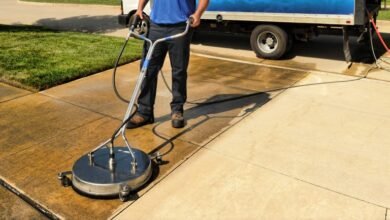When the Heat Fails to Rise: Handling Emergency Boiler Repairs

Boilers are the unsung heroes of our homes and workplaces. They keep us warm during the freezing months and ensure our hot water flows seamlessly. However, when a boiler breaks down unexpectedly, it can cause immense inconvenience and even pose safety hazards. This blog post aims to guide you through the crucial steps to take when dealing with emergency boiler repairs. We’ll cover everything from initial troubleshooting to seeking professional help, ensuring you can handle the situation efficiently.
Recognize the Signs of a Boiler Breakdown
Boilers often give subtle warnings before they completely fail. Understanding these signs can save you from an emergency. Common indicators include strange noises, fluctuating water temperatures, and a sudden drop in water pressure. Uneven heating throughout your home or workplace is another red flag. Recognizing these signs early can help you take preventive measures and avoid a full-scale breakdown.
Another important sign to watch for is unusual smells emanating from the boiler. A metallic, burning odor could indicate overheating components, while a gas smell is a serious concern that requires immediate attention. Lastly, pay attention to error codes displayed on modern boilers, as they can offer valuable clues about the underlying issue.
Addressing these signs promptly can save you time, money, and the hassle of dealing with an emergency. Regular maintenance checks can also help identify potential problems before they become critical. By staying vigilant, you can ensure your boiler operates smoothly.
Initial Troubleshooting Steps
Before panicking, it’s essential to perform some basic troubleshooting. Start by checking the thermostat settings and ensuring they are correctly adjusted. Sometimes, the issue might be as simple as an incorrect setting. Next, inspect the power supply and make sure the boiler is receiving electricity. A tripped circuit breaker or blown fuse could be the culprit.
Examining the boiler’s pressure gauge is another crucial step. Low pressure can prevent the boiler from functioning correctly. Most boilers have an optimal pressure range marked on the gauge. If the pressure is too low, refer to the user manual for instructions on how to increase it. Additionally, check if the pilot light is on for older models, as a blown-out pilot light can halt the boiler’s operation.
If these initial steps do not resolve the issue, it’s time to consider more advanced troubleshooting. However, avoid tampering with internal components, as this can void warranties and potentially cause harm. At this point, seeking professional assistance may be the best course of action.
Know When to Call a Professional
While some issues can be resolved with basic troubleshooting, others require the expertise of a professional. If you notice persistent problems despite your efforts, it’s time to call in the experts. Certified technicians best handle issues like frequent boiler shutdowns, significant leaks, and unresponsive controls.
Calling a professional is also crucial if you suspect a gas leak. Gas leaks are hazardous and require immediate attention. Turn off the gas supply, ventilate the area, and contact a qualified technician immediately. Additionally, if your boiler is still under warranty, DIY repairs can void the coverage, making professional intervention the safer choice.
Maxi Boiler Services Pty Ltd specializes in boiler maintenance, servicing, repairs, and all associated work. Their team of technicians can tackle almost any boiler repair problem, ensuring your system is back up and running efficiently. With their expertise, you can have peace of mind knowing your boiler is in capable hands.
Preventive Maintenance Tips
Preventive maintenance is key to avoiding emergency boiler repairs. Regularly scheduled inspections can identify potential issues before they escalate. Start by checking the pressure gauge monthly to ensure it remains within the recommended range. Keeping an eye on water levels and topping off as needed can also prevent many common problems.
Bleeding radiators is another essential maintenance task. Over time, air can get trapped in the radiators, reducing their efficiency. Bleeding them regularly ensures optimal heat distribution. Additionally, cleaning the boiler’s components, such as the heat exchanger and flue, can improve its performance and lifespan.
Scheduling annual professional maintenance is highly recommended. Technicians can perform thorough inspections, clean critical components, and make necessary adjustments. This proactive approach not only extends the boiler’s life but also ensures it operates safely and efficiently throughout the year.
Understand Boiler Warranties
Boiler warranties vary depending on the manufacturer and model. Understanding your boiler’s warranty can save you money on repairs and replacements. Most warranties cover specific parts and labor for a set period, typically ranging from one to ten years. However, regular professional maintenance is often required to maintain warranty coverage.
Familiarize yourself with the terms and conditions of your boiler’s warranty. Keep records of all maintenance and repairs, as these may be needed for warranty claims. If your boiler is nearing the end of its warranty period, consider purchasing an extended warranty for additional peace of mind.
When scheduling repairs, always use authorized service providers to avoid voiding the warranty. Authorized technicians have the necessary training and access to genuine parts, ensuring the repairs are performed to the manufacturer’s standards. By understanding and adhering to your boiler’s warranty, you can safeguard your investment.
Read also: Garage Door Essentials: A Comprehensive Homeowner’s Guide
The Role of Replacement Parts
Replacement parts play a crucial role in boiler repairs. Using genuine parts ensures compatibility and longevity. When a component fails, it’s tempting to opt for cheaper alternatives, but this can lead to further issues down the line. Genuine parts are designed to work seamlessly with your specific boiler model, ensuring optimal performance.
Keep an inventory of commonly replaced parts, such as pressure relief valves, thermostats, and gaskets. Having these on hand can expedite repairs and minimize downtime. Consult your boiler’s user manual or a professional technician to identify the most critical components to stock.
The Importance of Professional Installation
Professional installation is crucial for the long-term performance and safety of your boiler. Improper installation can lead to frequent breakdowns, reduced efficiency, and potential safety hazards. Certified technicians have the expertise to install boilers according to manufacturer specifications and local regulations.
During installation, technicians will perform essential checks to ensure the system operates correctly. This includes verifying gas connections, testing pressure levels, and calibrating controls. Proper installation also involves setting up ventilation systems to prevent carbon monoxide buildup, a serious health risk.
Emergency boiler repairs can be stressful, but recognizing early warning signs, troubleshooting, and knowing when to call professionals can minimize downtime. Regular maintenance, understanding warranties, and using genuine replacement parts improve reliability and lifespan. For any boiler issues, seeking expert help ensures your heating system remains in top condition, allowing you to stay warm and worry-free.






